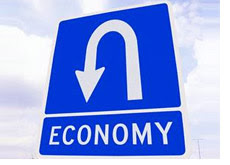What If?

Some people actually get married between Christmas and the New Years. Forty one years ago today, I was one of them. I stayed married for a little over half that time. Divorce is a time of examination, and of philosophizing about mistakes and regrets and wondering why and what if. So is the end of a calendar year. Sometimes we look back one year and sometimes many more.
I recently came across my college grade prediction scores. My strong suits were foreign language at 3.7 and botany at 3.6. At O’Dea High I was required to take Latin for four years, which explains the high language score but does not predict my failure to comprehend more than 5% of the dialogue in the foreign movies I have been watching for almost fifty years. The botany score reflects my interest in propagating plants from seed. My parents raised dahlias for competition and from their literature I learned about propagation. I was fascinated by the skin color variations of the multiracial friends in my neighborhood and wanted to learn how traits were passed from parents to children, so I chose dahlia parents of different colors to see what their children would look like.
Math and English were the two majors I considered on entering college. My predicted grade for math was 3.3, and for English 2.9. As it turned out, I chose to "pre-major" and then gravitated into pre-law, concentrating on political science, for which the grade prediction was 3.2. Looking at the predictions again, I was surprised to see music at 3.3, and art and drama at 3.2, since I cannot play a note or draw a lick and I have terrible stage fright. Pursuit of either of those majors might have turned "Sense" into "Sounds", "Sketches" or "Scenes" from Seattle.
At the low end of the grade predictions was engineering at 2.3, which makes sense, since I am good at taking things apart, but terrible at putting them back together. The 2.4 in economics also makes sense now, because I have learned that economics is basically double talk, smoke and mirrors. The smartest economists got us into the current financial chaos and they do not really know how to get us out. The most successful economic idea of recent years, micro credit, was not awarded the Nobel for economics, but won the 2006 Peace Prize instead. Economics was a late comer to the Nobels and arguably is such a vague field that it should never have been included.
My shelf of books purchased but unread books includes "What If?", edited by Robert Crowley, in which various military historians speculate how history would have been changed if battles had ended differently. The book, published in 1999, does not discuss anything more recent than the communist takeover of China. More recent military what ifs could include changes such as Russia vetoing the Korean War, Soviet missiles staying in Cuba, the US not getting involved in Vietnam, coalition forces removing Saddam from power in the Gulf War and the US Congress not being fooled into authorizing the invasion of Iraq.
Prediction, actuality and reflection is the sequence. Education, marriage, career, investment and wars all are subject to prediction, sometimes inaccurate and sometimes dishonest. War and investment seem the most likely victims of bad predictions. Predictions of marriage should be fairly accurate, but the uniqueness and intensity of the relationship varies the results, sometimes for the better and sometime for the worse. Educational and career predications may be more accurate, but are underused and over-ignored.
In their later years, people often look back on their life with a mixture of nostalgia and regret. For me, not being a believer in re-incarnation means we don't get do-overs. We play the hand we are dealt as best we can, making changes along the way based on what we have learned. Nobel Laureate Toni Morrison in an AARP interview said it is bad to have regret as we age and then admitted that she is full of it and that "everything I did right, I didn't do well enough. I'm not morbid at all. It's just that I would like to do it again." Like most people, I wish I had been dealt a better hand in life, and I wish I had played the one I was dealt better than I did. But I don't think I played it that bad. Bluffing works sometimes in cards, but in life it usually just causes problems. I try not to bluff, though sometimes an honest effort to change feels uncomfortable.
I bid good riddance to the political stress of 2008 and look forward to Bush being replaced by Obama. Our country has learned from the enormous mistake of letting Bush take our Presidency. The economic losses of the year may start being repaired in the new year. Unread and new books are waiting to be digested, as are lists of movies old and new. My New years wish for us all is that our "what ifs" regarding the past be replaced with our "what ifs" for the future.


